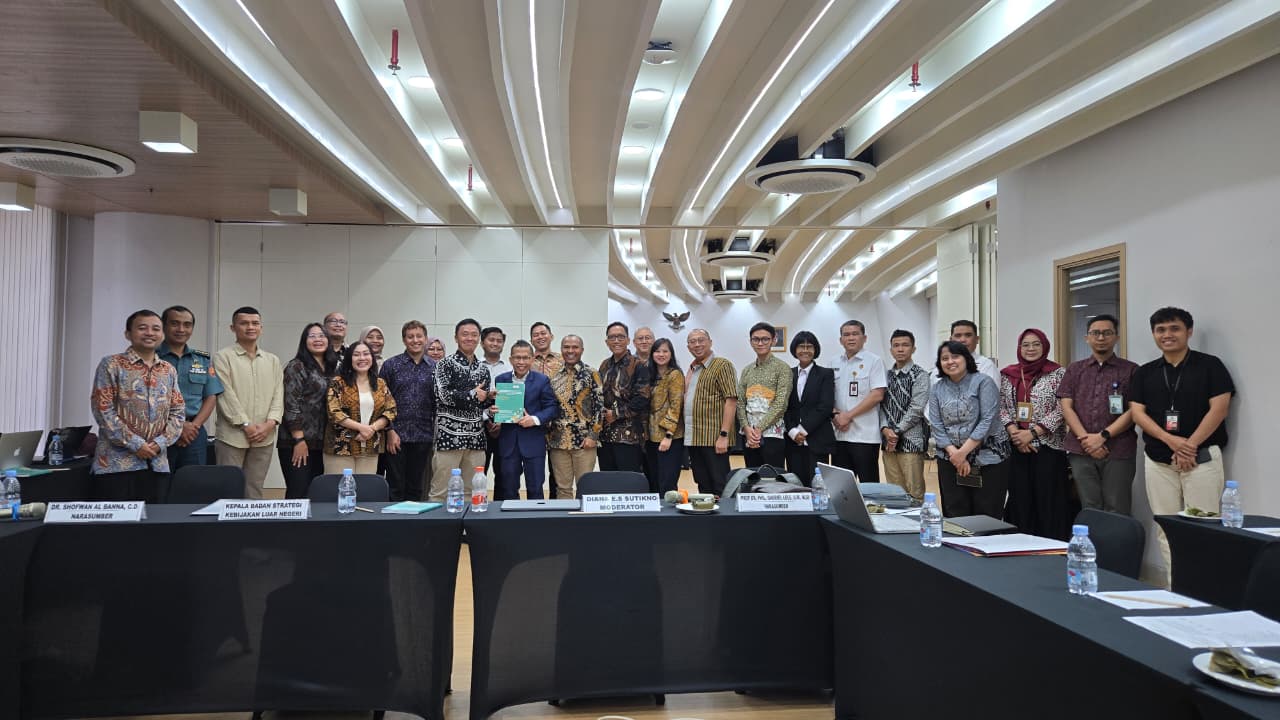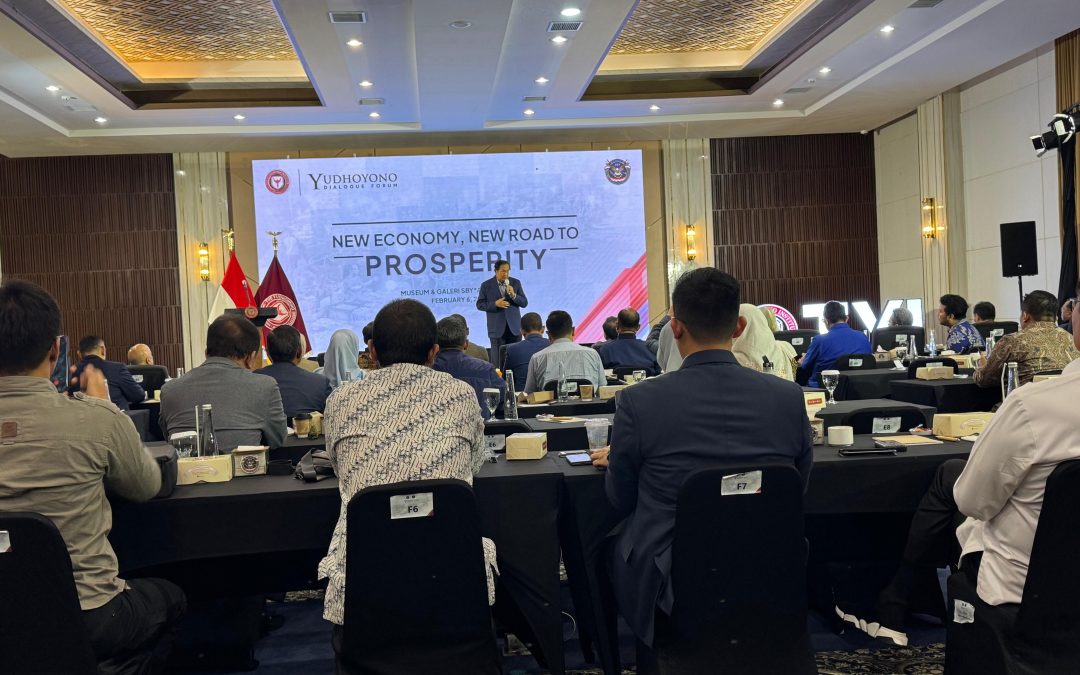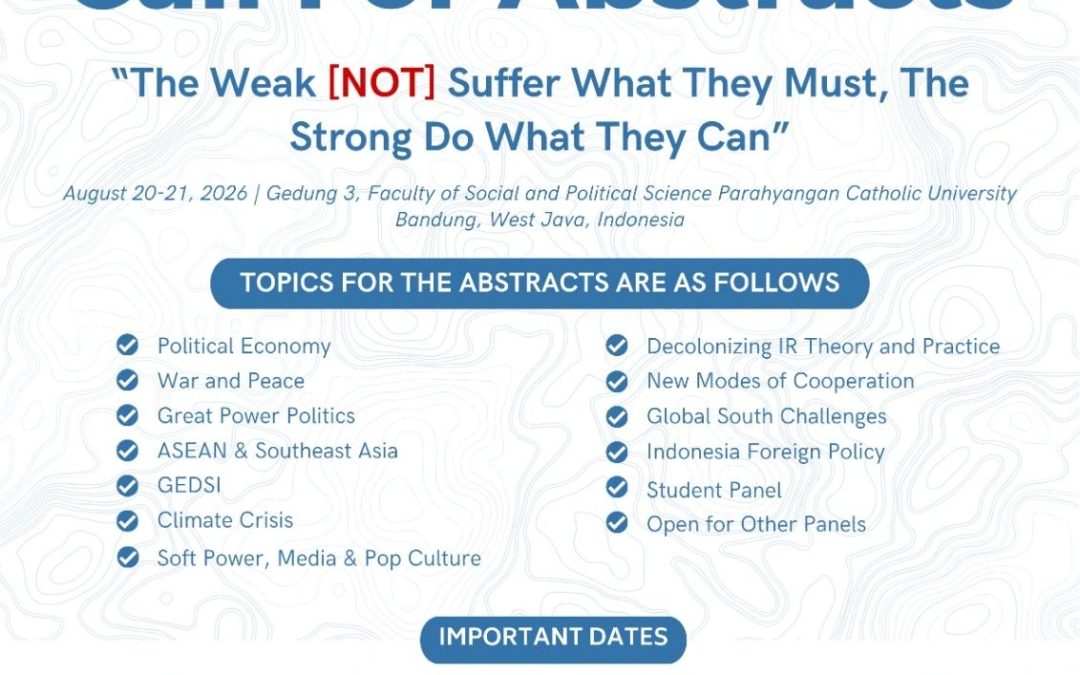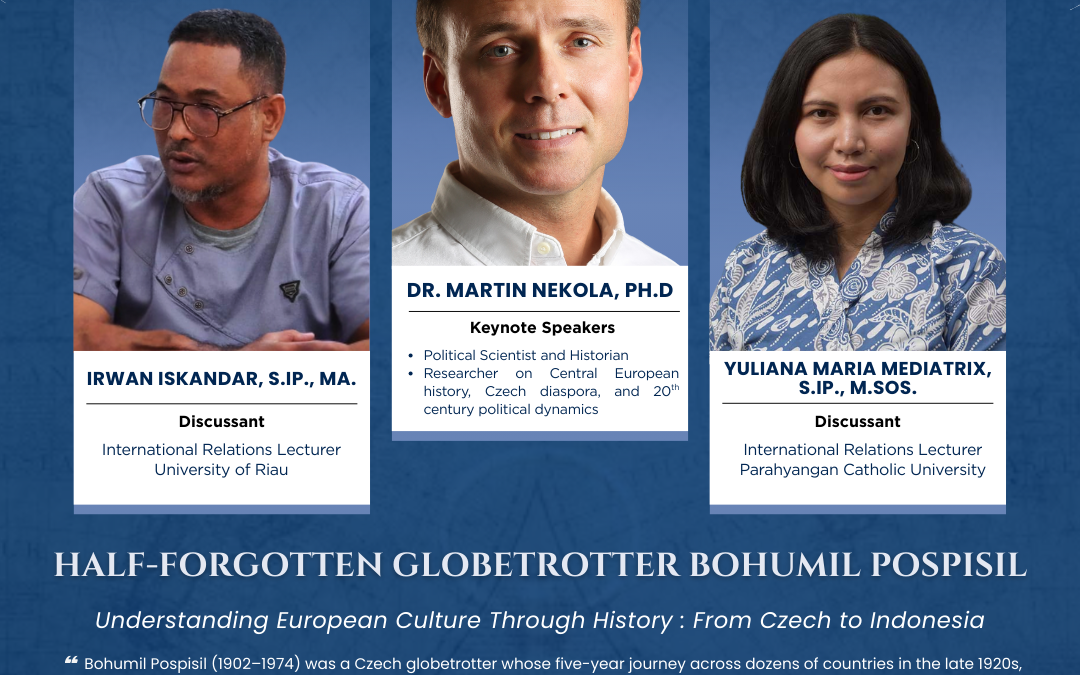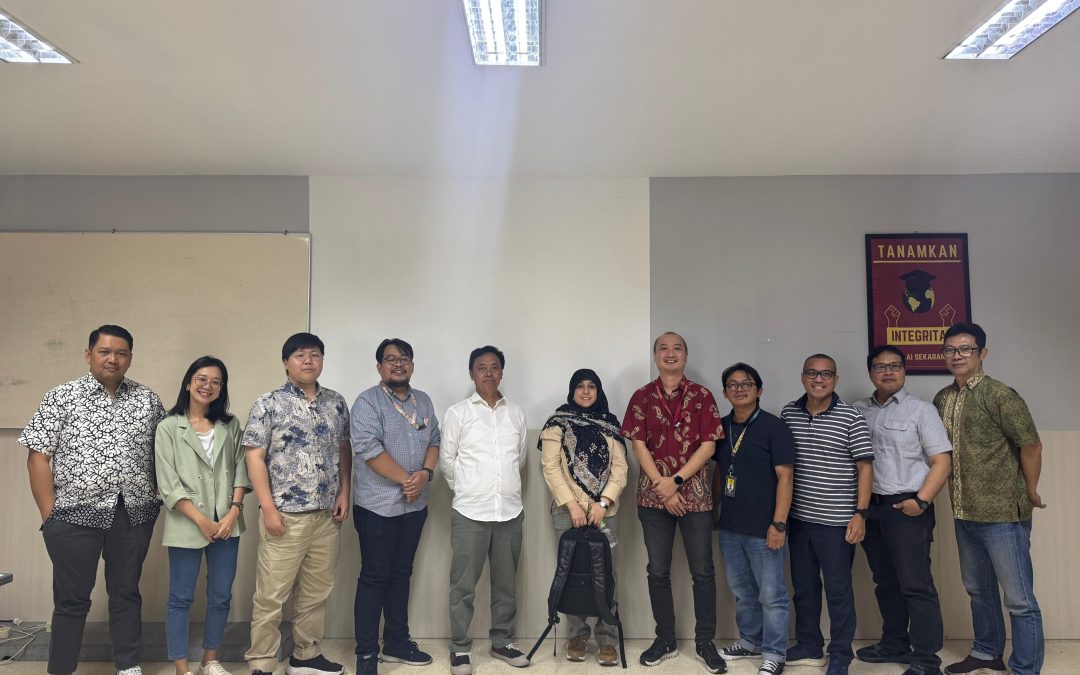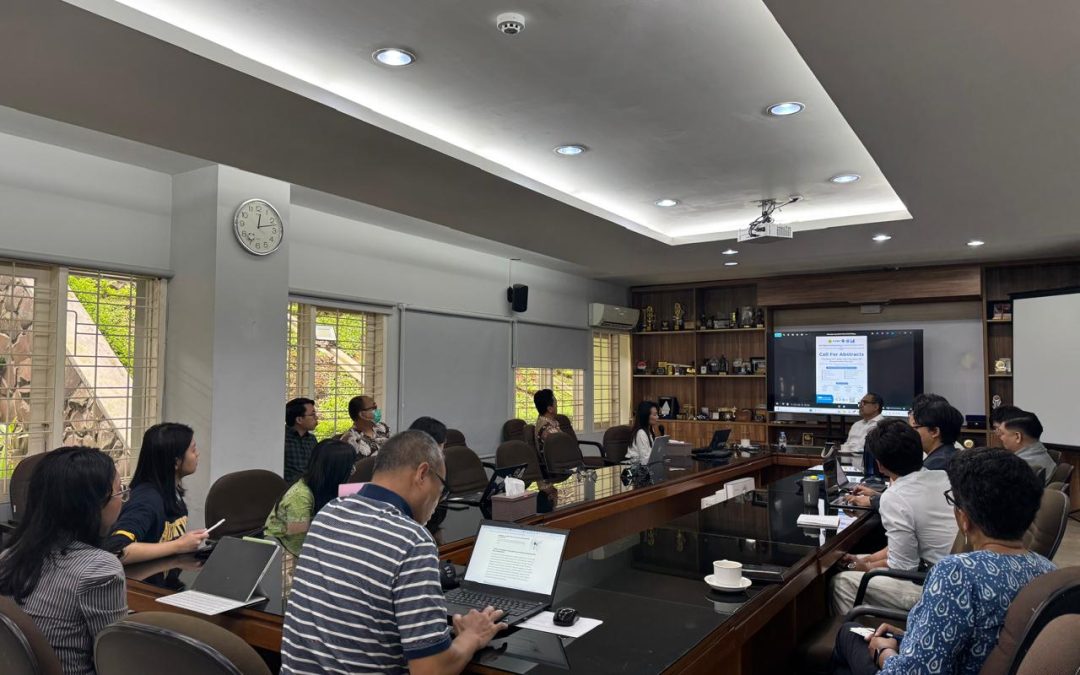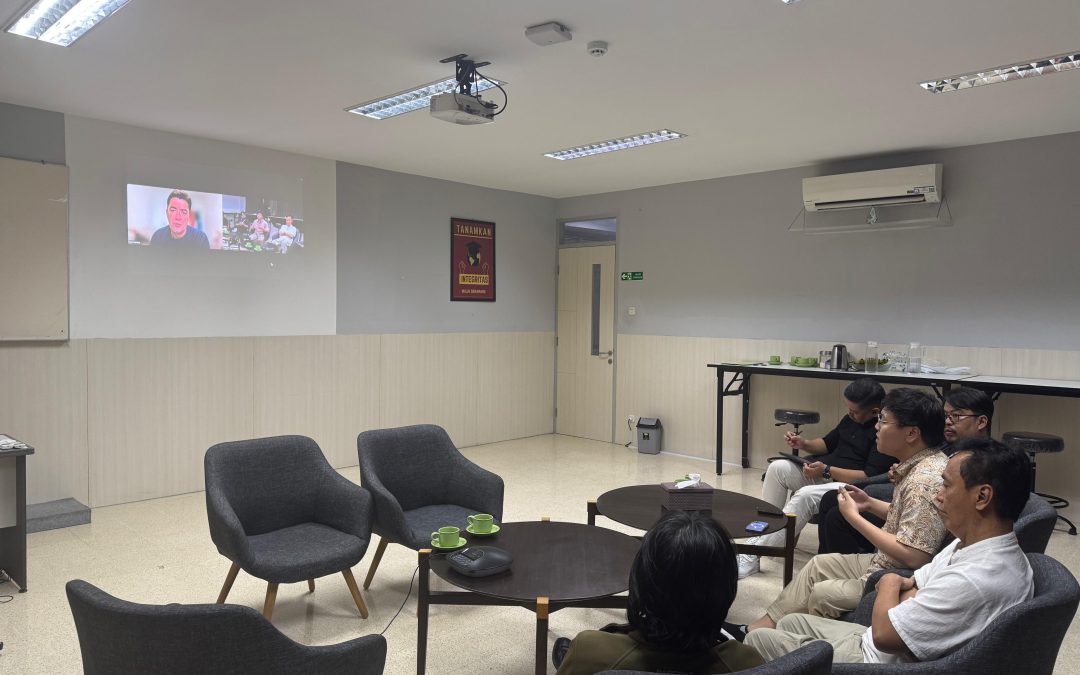Depok, November 13, 2025: Located at the Science and Technology Park (STP) of the University of Indonesia, Depok, the Head of the Foreign Policy Strategy Agency (BSKLN), Ministry of Foreign Affairs launched the book “Konteks dan Signifikansi Kerja sama dalam Indonesia’s Strategic Framework for Elevating Development Partnership with the Pacific.”
The event began with the launch of the document Indonesia’s Strategic Framework for Elevating Development Partnership with the Pacific, which serves as a structured roadmap of Indonesia’s commitments and action plans to strengthen partnerships with countries and entities in the Pacific region. The launch was conducted by the Director General of Asia Pacific and Africa of the Ministry of Foreign Affairs. The Strategic Framework document demonstrates Indonesia’s fulfillment of the promises made in the Bali Message, which was the outcome of the Indonesia Pacific Forum for Development (IPFD) in Bali on December 7-8, 2022.
In the Bali Message, Indonesia expressed its commitment to develop a long-term development cooperation roadmap with countries and territories in the Pacific at both the bilateral and multilateral levels, including through triangular partnership mechanisms.
There are four areas of development cooperation that Indonesia wishes to enhance with the Pacific. The first area is economic development and connectivity, including strengthening trade cooperation, business-to-business networks, and capacity building in food processing, agriculture, forestry, and fisheries. The second area is human-centered development, including scholarships for young people from the Pacific, cultural exchanges, and support for health, education, and tourism development.
The third area is enhanced cooperation in maritime affairs, the environment, and security, including the prevention of Illegal, Unreported, and Unregulated Fishing (IUUF). The fourth area of cooperation is disaster management and climate change, in which Indonesia is committed, among other things, to improving cultural management, post-disaster recovery, and search and rescue in transportation accidents.
To support the launch of the Strategic Framework, BSKLN published a public book that explains the contextual background underlying the preparation of the Strategic Framework and explains the importance of the Strategic Framework for strengthening Indonesia’s cooperation with the Pacific.
It is hoped that the Strategic Framework companion book can serve as a reference for ministries and institutions expected to be involved in the implementation of the Strategic Framework through cooperation projects in accordance with their respective authorities and competencies.
The Strategic Framework Companion Book was compiled as a result of a study involving a team of researchers from PACIS, LPPSP University of Indonesia and the Asia Pacific and Africa PSK team of the Ministry of Foreign Affairs since July 2024. Furthermore, the substance of the book was harmonized with the Strategic Framework in 2025.
The launch of the Strategic Framework and Companion Book was opened by the Head of BSKLN and the Director General of Asia Pacific and Africa, and continued with an open discussion on the contents of the companion book, moderated by a senior diplomat from BSKLN Kemenlu.
The Chair of LPPSP Universitas Indonesia gave a presentation on the context of maritime issues, economic development, and climate change in the Pacific. The Chair of the Parahyangan Center for International Studies (PACIS) gave a presentation on the context of security issues, human-centered development, and connectivity development in the Pacific region. Prof. Dr. Gabriel Lele, a Pacific studies expert from Gadjah Mada University, provided feedback on the book.
In his presentation, Yulius P Hermawan, Chair of PACIS, emphasized that the Indonesia-Pacific development partnership is a strategic approach taken by Indonesia to win the hearts and minds of the Pacific community in order to embrace a better future together, improve mutual prosperity and resilience amid emerging challenges.
Attending the launch and discussion were senior officials from the Indonesian Ministry of Foreign Affairs, representatives of ministries and institutions expected to contribute to the implementation of the Strategic Framework, and representatives of the Indonesian Embassy in Pacific countries.
Written by: YP Hermawan

